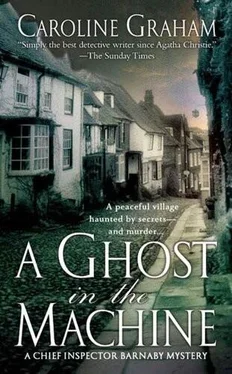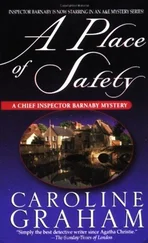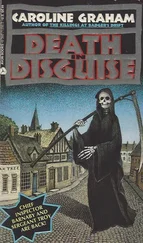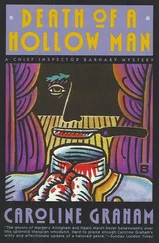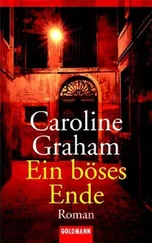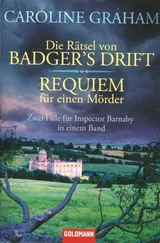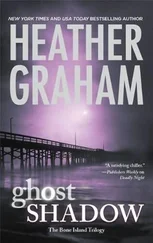Now Karen, having safely tottered across the landing, began to descend the stairs, tightly gripping the banister. There was a pleasant smell of warm toast.
“Hello, sweetheart,” cried Ava as her daughter safely negotiated the final stair. “Brekkies up.”
Karen paused, hesitated. She almost looked over her shoulder to check that no other person, the “sweetheart” of the greeting, had mysteriously materialised. She wasn’t hungry, but who could resist such a welcome?
“Great—thanks.” The table was full of rubbish: dirty plates and cutlery, a huge glass ashtray brimming with scarlet-tipped butts, an empty jam jar, a scraping of marge in a saucer, the Evening Standard. “I’ll get some cornflakes then.”
But Ava had already gone back to her writing. Karen found a waxed bag with a rubber band round it and shook out the few remaining fragments. She added some UHT milk (£1.50 for a packet of six). Unopened it kept for ever. You bought it off a lorry on the market. The side rolled down and things were stacked really high inside. Everything was past its sell-by date and some of the tins were rusty and had labels you’d never heard of but it was all incredibly cheap. Karen sat down, then got up again to move the ashtray, which smelled disgusting.
“If you’re making a list we want some more cereals.”
Ava immediately put her arm around the bit of paper like a child at school. Not that she was embarrassed to reveal that she was planning to treat herself but because Karen would then know she had some money and would begin looking for it. She’d probably tell Roy too, just to start something. The pair of them were as thick as thieves.
“I’m just making some preliminary notes for when I’m called to rehearsals. Aahh— Blithe Spirit ’s such an enchanting play.”
“Good idea.” Karen left it at that, though she had been present at the conversation with Cully Barnaby and knew that any future involvement was all in her mother’s mind. It wasn’t easy to keep silent. When Ava discovered her mistake all in the immediate vicinity would suffer from the fallout. Would be castigated and lectured as if caught out in some crafty misdemeanour. Her ability to shift blame was awesome. On the other hand, attempting to point out any error in advance could also bring about unpleasant repercussions. Either way you couldn’t win.
Karen picked up the Standard , blew some ash off a picture of Phil Collins and turned to Entertainments. She started to read down the theatre column: Adelphi, Albery, Aldwych, Ambassadors, Apollo, Arts, Astoria…Then paused and read backwards, running her nail carefully past each name lest she had missed one out.
“Ava?”
Ava made an impatient yet regal gesture, like a pasha swatting some importunate insect. Karen, having taken the risky decision to speak added boldly: “It’s not in here.”
“What?”
“The theatre.”
Ava looked up and sighed. “What are you on about?”
“The Almeida.”
“Let me see.”
Ava snatched the paper, folded it, brought it up to her eyes and squinted. Karen watched as alarm flickered over her mother’s face. The corner of her eye twitched.
Ava said. “If they’re rehearsing I expect it’s closed.”
“But don’t they put the number in anyway,” asked Karen, “in case people want to book for shows and things?”
Ava had by now got to Wyndhams and was anxiously retracing her steps. It was true. The Almeida was not listed. That bitch of a girl – that so-called actress – must have been stringing her along. She started furiously flicking the pages, turning them back, reading around the listings.
“There!” Ava was so relieved she almost choked. Her finger stabbed the Standard so hard it went through the paper. “See?”
“Oh, yes.”
“There is such a thing as fringe, darling. Though you wouldn’t know – not being in the business.” She frowned at the clock, then at Karen, now lolling about in the chair opposite with all the time in the world at her disposal. And she’d be doing it for the next six weeks. Whoever invented school holidays, thought Ava bitterly, couldn’t have had any kids.
“We must get on. There’s a lot to do today.”
“I haven’t finished my breakfast.”
“Don’t whine, dear. Whining’s for wimps.”
Karen scraped at her cereal bowl, licked up the last of the grey metallic-tasting milk. “Could I have some toast?”
Ava sighed again and adopted one of her put-upon looks. The child had been like this since the day she was born. Want, want, want. Never satisfied. Hoping that silence meant yes Karen found a heel of bread in the bin and put it under the grill.
“I expect you’ll be out most of the day with a friend?”
“Don’t know.”
“Stay with them for lunch. And tea,” suggested Ava. “Eat someone else out of house and home for a change. That’s what friends are for.”
Karen had no idea what friends were for. She had never made one. Never come even close. Ava had taught her that. Don’t trust anyone, then you won’t be hurt. Karen saw the sense in this; saw indeed that it was true. Of course she would never know how much hurt she’d been saved but tried to believe it was an awful lot as this made never having a friend easier to bear.
“Alternatively,” continued Ava, “the lounge could do with a good going over.”
A short while later, when Karen was washing up, the telephone rang. Ava answered and in next to no time was engaged in quiet but rather frenzied conversation with George Footscray. He had called to say that her revelations at the conclusion of yesterday’s meeting had struck him as so sensational that he had contacted the Causton Echo. They very much wanted to do an interview. Should it be convenient a reporter and photographer would come to Rainbow Lodge that very afternoon. As her representative he would naturally be present to support and advise her.
Ava put the phone down with great care. She sat still, breathing very slowly, calming her nerves. It would never do at this stage to go to pieces. Not that there was much chance of that – she could cope with Fame; had been training for it all her life. Of course, George would have to go. Setting up an interview with the local rag was one thing. The nationals, radio and television, the media as a whole was something else. Ava made a careful note of the name Max Clifford.
Kate was gradually feeling more and more at home in Appleby House. It was over a week now since Dennis had died and yesterday his ashes had been interred, at Benny’s request, in the churchyard of St. Anselm’s. The Lawsons had been surprised at the turnout. Most of the village had been present and all the staff from Dennis’s office. His partner’s wife, Gilda Latham, organised everything and also put a notice in The Times , which probably explained the presence of quite a few mourners strange to the village. For such a private person Dennis seemed not to have been as short of friends as was generally imagined.
Of course, Kate’s main concern was Benny – how she would cope with such a painful occasion so soon after her traumatic experience at Kinders. So Kate was relieved, if a little surprised, when Benny said she was not going to the funeral but would pay her respects in her own time and in her own way. Benny was continuing to hold herself together with what seemed to Kate a determination bordering on the manic. Her pursuit of “justice for Dennis” remained both fiery and constant and she wrote more and more letters, though Kate could not help noticing there were still no replies. Perhaps Benny had given up hoping, for she no longer stood at the gate at ten o’clock looking out for the postman.
Читать дальше
